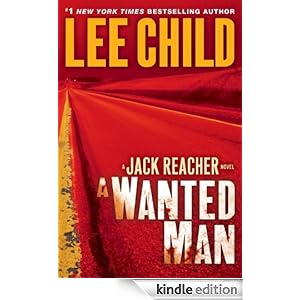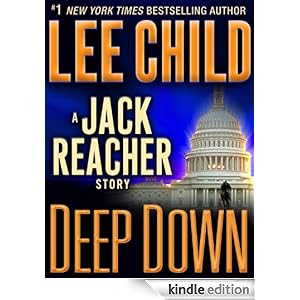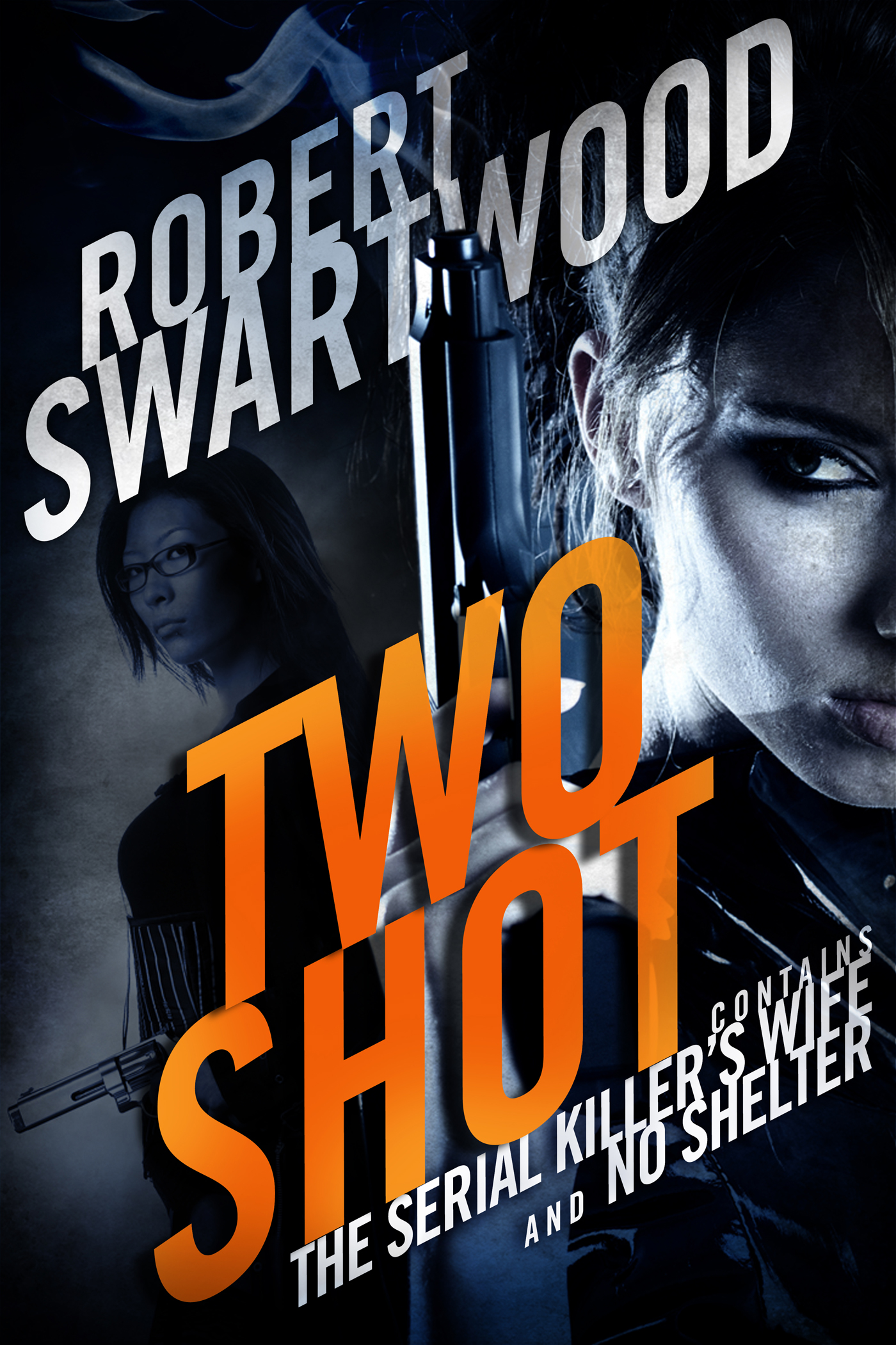A few weeks ago a writer friend of mine emailed me the front cover, spine, and back cover of a book that was apparently his novel. He didn't say much in the email, just that he would call me later to explain. I took a look at the cover, saw it wasn't done by any publisher, and figured okay, good, he'd finally decided to self-publish.
Then he finally called me a week or two later and I learned that no, he wasn't really self-publishing per se, but wanted to print up a few copies of his novel to have. Why? Well, because an agent had requested to see the book, as well as an editor at a major publishing house, and my friend thought it might be nice to send them the book in print form. You know, so they could see the potential final product. So what, my friend asked, were my thoughts on that?
My answer was pretty basic and simple: Hell no.
I then asked how long ago the agent requested to see the book.
About a month.
The editor?
About the same.
I said, Agents and editors basically have the memory of slugs. If they request to see something, you make sure to send it to them ASAP, while it's still fresh in their minds. A week, two weeks, even a month -- the more time that passes, the more likely it is they'll lose interest. (Plus, most agents will read the books on their ereaders, so sending the MS as anything other than a Word doc -- such as a, say, printed booked -- will be an inconvenience and might result in an automatic no thanks.)
Sure, that might sound like hyperbole, but it's true. Agents get bombarded daily with queries. If one catches their attention, it's a miracle. If the pitch is enough to have them request the entire manuscript or first 50 pages, that's even better. But you don't want to dick around once they've made a request. You want to send it as soon as possible. Why? Well, because most likely you'll be waiting a very long time to hear back from them.
In my short career I've had two agents. I'm currently with my second agent, and quite happy despite the fact I'm almost exclusively self-publishing. My agent understands the current market, and realizes that right now I'm better off going it on my own. In fact, he has a few other clients who have been self-publishing or are beginning to. One client in particular recently had the rights to several of his novels reverted back to him and has self-published those novels, as well as a brand new novel. That novel is currently in the Kindle top 100, so yeah, he's doing just fine.
Of course, not all agents are so understanding. Some will probably drop clients if those clients decide to start doing it themselves. I'm fortunate that my agent understands the market, like I said, but is willing to step in to help me with subsidiary rights, like audio or foreign if there's ever any interest in those. Last year he sent The Serial Killer's Wife to a film agent at CAA. The film agent read the book, liked it, and wanted to show it to some directors. Nothing ever came of it, of course, but still, I was happy that my agent would do a little extra work on a book he's currently not making any money on.
So my point? Well, it seems most of the questions I get nowadays from writers are about self-publishing, but I do understand there are authors who are still pursuing traditional publishers, and because of this, agents. All across the Internet you'll find writers coming up with neat and inventive ways to get agents' attention. I'll admit in the past I've even tried some of them. But the truth is, when I signed with both agents, it was with a straight-forward query letter. No tricks, nothing cute. And so now I'm going to give a quick rundown on how I signed with both of my agents, so if a writer ever asks how to go about getting an agent, I'll point them here.
1. For starters, make sure your book is 100% complete and as good as you think it can be. Most likely it will be improved later by an agent and editor, but right now you've made it as good as you can.
2. Know what genre your book falls into, and its readership. Also have a one or two paragraph pitch of your novel -- this will probably be just as hard as writing the actual novel, if not harder.
3. Do your research. Just don't send 100 query letters blindly. This is what many writers do, and it's stupid and a waste of time on everyone's part. Sure, a few writers will get lucky, but that's not always the case. Almost all agencies have websites, which list their agents. Those agents will have bios which most likely will list their clients, both past and present, as well as where they have worked in the past. Most times, these bios will also mention their genre interests. In fact, while I'm thinking about it, many writers will thank their agents in the acknowledgment sections of their books, so if your book is similar to so-and-so's, see who repped them. Also, many agents now have blogs, or their agency has blogs, or even Twitter accounts, where they talk about what they're currently seeing and what they'd like to see. Utilize that. (Though, as an aside, I would be leery of signing with an agent who blogs all the time, or is on Twitter all the time, as, well, they should have better things to do with their time.)
4. Start a list of potential agents. This list should be from the previous part, where you did your research. These agents should be ideal for your book, because they specialize in that book's genre. Most agencies now make it possible to email the agents directly. This is great, but be careful. You'll probably be sending out a lot of queries at the same time, so make sure to check and double check each agents' name before you hit the send button. Of course, you need more than just the agent's name. This is different for everyone, but for me, I did a quick introduction, told the agent about my book, and why I thought they might be interested (mentioning their current clients whose work is similar to yours is helpful). Then I gave a few paragraph pitch. In fact, here's the pitch I used and which got me signed with my current agent:
Dear Mr. Miller,
As you represent Dan Vining and Alexandra Sokoloff, I thought you might be interested in my nontraditional zombie novel THE DISHONORED DEAD.
A literary thriller best described as FAHRENHEIT 451 meets WORLD WAR Z, the book is set in a not-so-distant future, where the world has devolved and most of the population has become the animated dead. They function just like us — adults working nine-to-five, children going to school — except they are decaying and have no imagination or emotions. They have been taught by the Government to fear the living, whom they call zombies. They see these zombies as monstrosities that don't deserve to live, carrying parasites that threaten the safety of the dead world, with imagination that perverts their minds. So to keep the world safe, these zombies — the living just like you and me — are hunted down and destroyed.
Meet Conrad, one of the animated dead. A devoted husband, a loving father, he is the best zombie Hunter in the world. But when he hesitates one night in killing a living adult, his job is put in jeopardy. Instead of being outright dismissed, he is transferred to a program so secretive even the Government would deny its existence — and where Conrad soon learns a startling truth about how his own son might be in danger of becoming a zombie.
As living extremists become more emboldened and blow up a Hunter Headquarters, as a power-hungry Hunter becomes more enraged and will stop at nothing to gain absolute power, Conrad begins to question not just his profession, but his own existence. And before he knows it he is on a journey of self-discovery, remembering a past he was forced to forget, and soon finding himself not only a hunted man, but a man who must now save both his son and the entire world.
THE DISHONORED DEAD is an extension of my short story, "In the Land of the Blind," which won the 10th Annual Chiaroscuro Short Story Contest.
The novel is 100,000 words long and ready for submission.
May I send you the finished manuscript?
Sincerely,
Robert Swartwood
Now, in this case, I did not do what I now preach -- I gave no introduction or bio of myself. In fact, the agent responded the same day, saying that the book sounds good and to send the entire thing -- and to include a bio. I actually went home early from work that day to go through the entire book one last time before sending it (again, send it ASAP). A week later he emailed saying he was halfway through and liking it and for me not to do anything until we'd talked. A week after that, he called and offered me representation. What's funny, though, is that a few other agents had requested the first 50 pages weeks prior to me sending this query, and they still hadn't taken a look by the time I emailed telling them I would have to withdraw my submission. My point in mentioning this is that all agents work at different speeds. Some are faster, most are slower. That's just how it goes. When querying agents, be prepared to wait a long time. Then, if they're interested and want to see the first 50 pages or full MS, be prepared to wait even longer. Then, if they offer representation, be prepared to wait a whole lot longer from publishers. Then again, sometimes things happen really fast. I've heard of book deals that literally take days from the agent offering representation to a publisher placing a bid. At the same time, I've heard of book deals that have taken years.
5. Most importantly, if you are offered representation, don't say yes immediately. An agent-writer relationship is a business relationship, and as with all relationships, you don't want to just jump into bed with someone you don't really know. Sure, they might represent so-and-so, but so what? Talk to the agent. Ask questions. See if you're comfortable with this person. My main question was what will happen if, God forbid, my book doesn't sell. My agent's response: We go on to the next book.
Which was the perfect answer.
Now, as another aside, in the past year my priorities have changed. I used to have "dream publishers" I wanted to work with. Now I just want to sell books and grow a readership and make money. Do you need an agent or publisher in today's digital marketplace? No. In fact, if you do proceed with trying to find an agent, that's great. Most likely you'll be waiting a very long time while writers like me will be getting our work out there to readers and making money. But every writer is different, with different goals, so you can't compare yourself with anyone else. Do what you want to do. It's your career. Just be aware of all the different routes, and make sure you're on the one that suits you best. Good luck.












